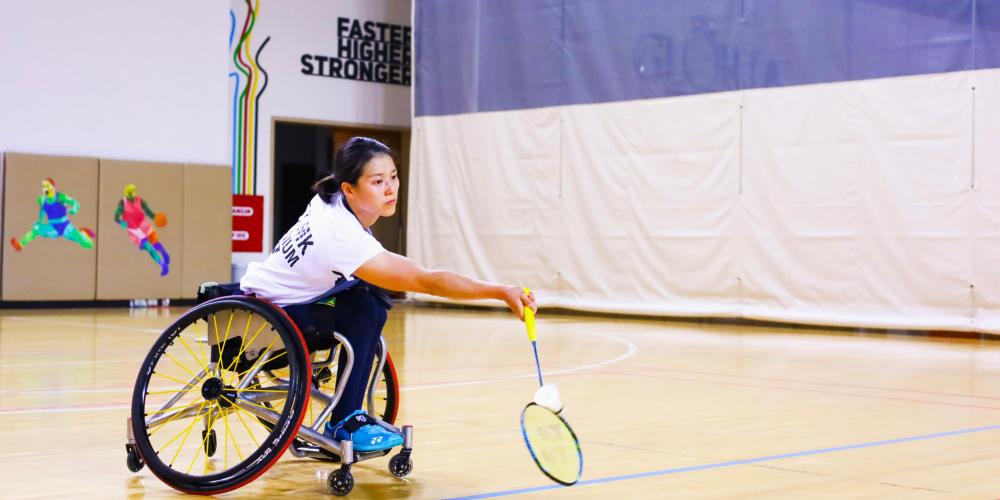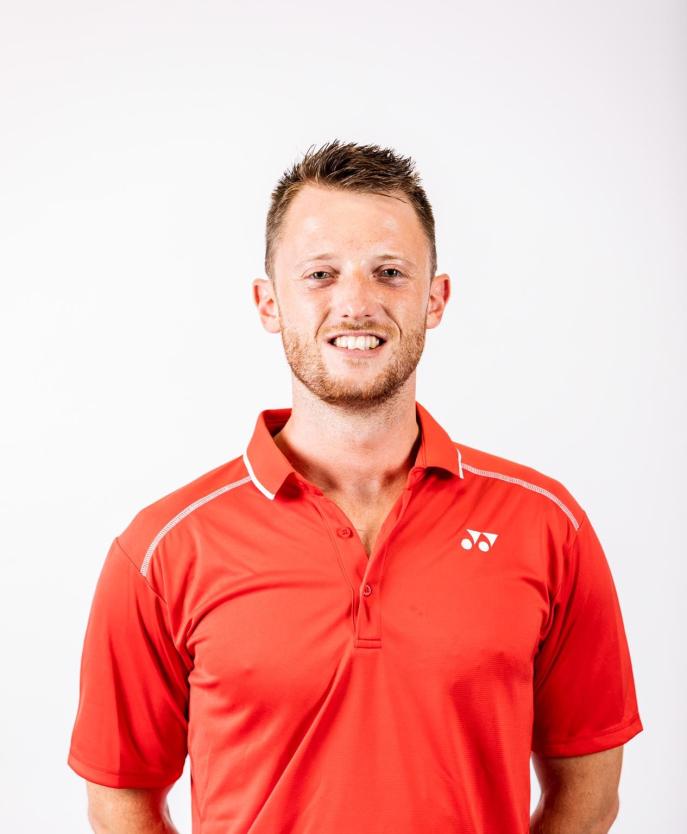
Arno Boonants works as a policy officer education for the Brussels University Association (the partnership between the VUB and EhB) and coaches badminton player Man-Kei To — better known as Kiki — who is competing in the Paralympic Games. Kiki, the European champion in 2023, will play her first match on Friday, August 30, and is a strong medal contender. Arno says, "Sport gives people a sense of being good at something and the ability to compete with others."
How did you become Kiki’s coach?
“It actually happened by chance. I was coaching for the badminton federation and running a course when Kiki asked if I could train her. We both enjoyed it, and from 2019, I started training her twice a week. Gradually, we received more financial support, which allowed us to include mental training and physiotherapy. Thanks to her elite athlete status, she was able to continue training during the pandemic, despite indoor sports being banned. Last year, we trained intensively — two sessions a day, on the court, cardio, strength training, physiotherapy — and it paid off with a European gold medal and qualification for the Paralympic Games.”

Arno Boonants
How was the opening ceremony of the Games?
“I expected it to be fun, but it exceeded all my expectations. There was so much enthusiasm, a fantastic atmosphere, and the volunteers were incredibly friendly. It was a unique experience. Kiki enjoyed it immensely, and that’s important. Participating in the Games is a special experience, not just about performing but also about living in the moment.”
What are Kiki’s chances of winning a medal?
“She’s definitely a medal contender, but as with any sport, the matches have to be played first and you also need a bit of luck. She should normally win her first two group matches. Then it depends on the draw in the quarterfinals. With a bit of bad luck, you face a strong opponent early, with a bit of good luck you might not meet them until the final.”
Kiki was paralysed in a severe traffic accident in 2007. How has she developed into the athlete she is today?
“Kiki told me that for the first five years after the accident, she did absolutely no sports; she was just trying to get her life back on track. Her introduction to badminton was purely by chance, a bit of scrolling on the internet and trying it out. She liked it and turned out to have a knack for it. Now, she truly lives for her sport. At tournaments, you see that athletes with the same disabilities and wheelchairs have a lot in common and thrive. It’s beautiful to witness.”
"People involved in disability sports are often very warm and helpful"
How important is sport for Kiki and people with disabilities in general?
“Sport can be a great outlet and a way to divert your thoughts. It gives people a sense of being good at something and the ability to compete with others. What strikes me most is the humanity and openness within para-sports. There’s a lot of interaction between different countries, and coaches share their knowledge and techniques. You see this much less in mainstream circuits.”
Parasports is expensive, especially at the top level. How difficult is it to afford?
“There is indeed a significant financial barrier for para-athletes. Unless you achieve top performances and secure funding, such as from Sport Flanders, it’s almost unaffordable. You need a regular wheelchair as well as a sports wheelchair and other expensive sports equipment. A special prosthesis can easily cost between 20 to 30,000 euros. Also, the accessibility of sports facilities for people with disabilities often leaves much to be desired. Good intentions are there, but often there is no one involved who actually uses a wheelchair.”
How do you balance this with your other work?
“It’s not easy. Fortunately, I work part-time and my employer is very flexible. It remains a bit of a juggling act, but it’s very rewarding. People involved in disability sports are often very warm and helpful. Humanity is paramount, even though we are aiming for the highest honour at the Paralympic Games.”